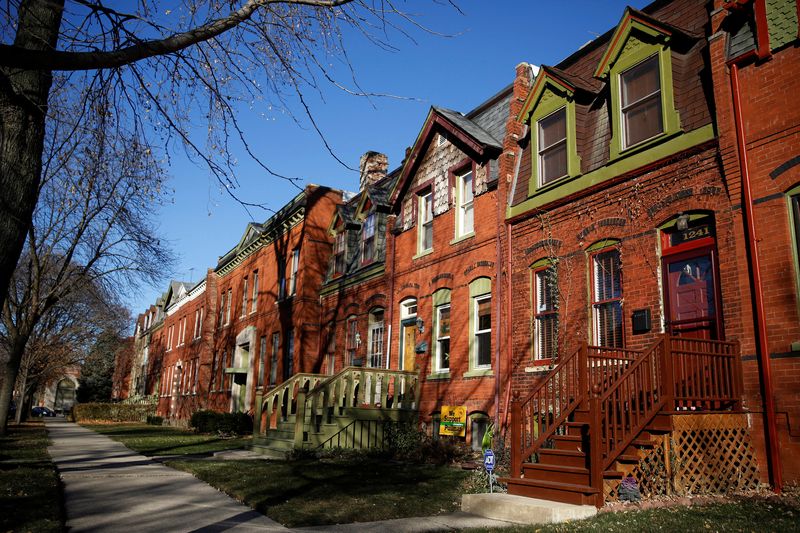By Jonathan Stempel
(Reuters) – A federal appeals courtroom on Thursday made it simpler for the U.S. Client Monetary Safety Bureau to police a type of housing discrimination referred to as redlining, reviving the company’s first such case towards a non-bank mortgage lender.
Reversing a decrease courtroom ruling, the seventh U.S. Circuit Courtroom of Appeals stated the CFPB can attempt to show that Chicago-based Townstone Monetary and its co-founder Barry Sturner violated the federal Equal Credit score Alternative Act by discouraging Blacks from making use of for mortgage loans.
Circuit Choose Kenneth wrote for a three-judge panel {that a} CFPB regulation for imposing the regulation utilized not simply to mortgage candidates, but additionally to discouraged potential candidates.
Redlining happens when lenders deny or discourage mortgage loans primarily based on race, shade, or nationwide origin.
The CFPB sued Townstone and Sturner in July 2020, citing statements made on Townstone’s AM radio present and podcast “The Townstone Financial Show”, referred to as a long-form business commercial.
These included the place Sturner stated Chicago’s South Aspect was “hoodlum weekend” between Friday and Monday, and one other host discussing a primarily Black suburb stated “you drive very fast through Markham … and you don’t look at anybody or lock on anybody’s eyes.”
Townstone’s practices led to its receiving fewer mortgage purposes from Black candidates and for houses in majority-Black neighborhoods than its Chicago-area friends, the CFPB stated.
The defendants stated the CFPB lawsuit was a way to censor their speech.
However Ripple, an appointee of Republican President Ronald Reagan, stated “it was clear” that Congress supposed that the Equal Credit score Alternative Act be construed broadly, with a aim of ending discrimination in mortgage purposes.
“The term ‘applicant’ cannot be read in a crabbed fashion” to exclude discouraged candidates, Ripple wrote. “Congress well understood that ‘any aspect of a credit transaction’ had to include actions taken by a creditor before an applicant ultimately submits his or her credit application.”
Oliver Dunford, a lawyer for the conservative nonprofit Pacific Authorized Basis which represented the defendants, stated “we’re disappointed in the decision,” which “ignored completely Townstone’s First Amendment arguments. We are considering our options for further review.”
A CFPB spokesperson had no instant remark.

The seventh Circuit returned the case to U.S. District Choose Franklin Valderrama in Chicago, who dismissed it in February 2023.
The case is CFPB v Townstone Monetary Inc et al, seventh U.S. Circuit Courtroom of Appeals, No. 23-1654.




